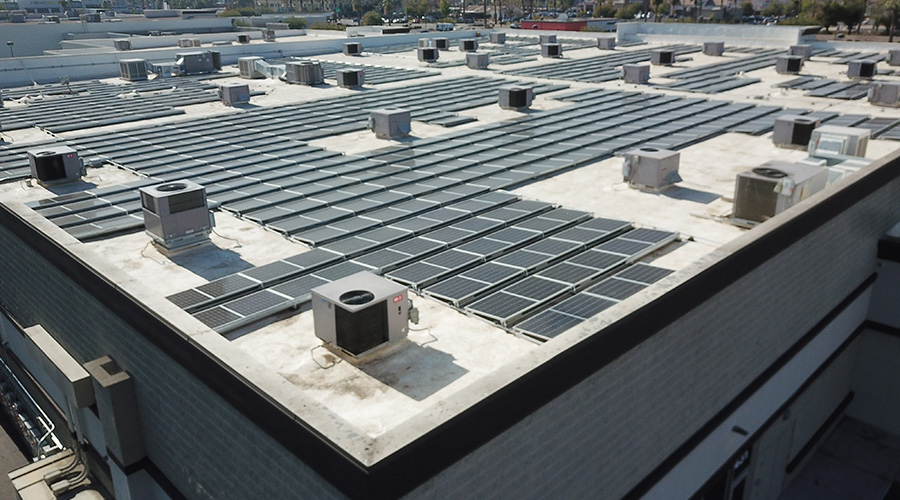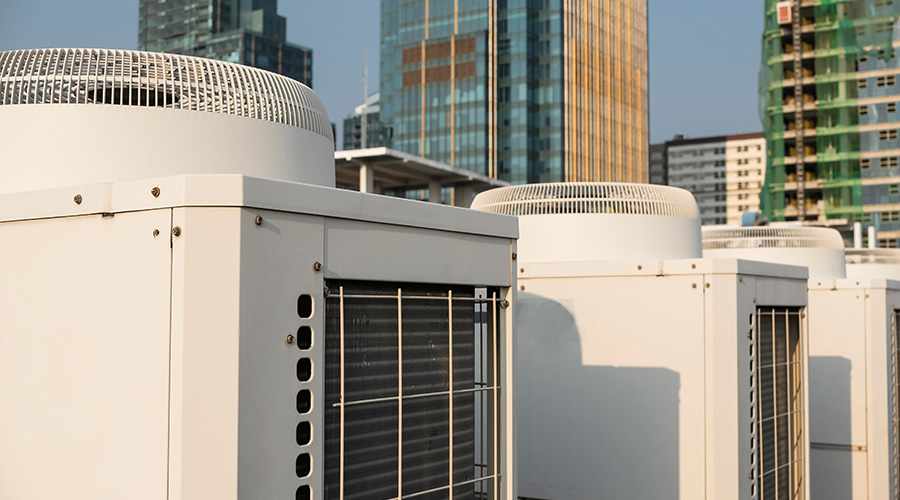Solar Installation Creates Big Savings for Arizona Church
Innovative solar agreement projects to save church 30 percent on energy costs.
By Doug Carroll, Contributing Writer
If a rooftop solar-power installation would cut an institutional and commercial facility’s annual energy bill by about one-third, significantly reduce carbon emissions and require no upfront investment, would facility managers sign on for it?
We’re guessing managers are reaching for their pens right now. Because that’s what Palm Valley Church in west suburban Phoenix did recently, working with two partners to complete an innovative solar service agreement and installation.
Here’s how it came about. The church site, in a former multi-tenant retail building in Goodyear, Arizona, holds religious services and many classes and provides meeting spaces for community groups. That adds up to high annual energy use — and a need for some insulation from the rising cost of grid-supplied electricity.
The church’s leadership turned to Sunrock Distributed Generation, a commercial solar and clean energy development and management platform, and Watthub Renewables, a nationwide commercial solar installer. A 622-panel solar system was put in place in May, just in time for another withering Phoenix summer.
Sunrock provided 100 percent of the financing for the installation and will own and operate it for the next 30 years. It will sell all energy generated onsite to Palm Valley Church at a discounted price compared to the cost of grid-supplied electricity.
Based on the size of the installation and the current grid electricity prices in Arizona, this is expected to reduce the church’s electricity costs by about 30 percent per year throughout the project’s expected lifetime of 35 to 40 years. However, these savings could be higher if grid energy prices continue to rise.
As part of the agreement, the installation will be maintained under contract by SunRenu Solar, a sister company of Watthub.
Perhaps you never envisioned a church as a solar energy pioneer. But Wilson Chang did.
“Our mission is to build solar systems for everyone,” says Chang, Sunrock’s CEO, who is charged with the platform’s growth strategy in the U.S. “Solar has traditionally only benefited large companies, but we don’t think that needs to be the case.”
Indeed, Sunrock’s stated vision is to simplify the transition to solar and clean energy for businesses, nonprofits and educational institutions in local communities.
The construction, Chang says, is the easy part. The heavy lifting involves the back-channel work of permits, utilities and administration, requiring a high degree of collaboration. However, once those hurdles are cleared, it’s all systems go.
“These projects are designed to be set-it-and-forget-it,” says Alan Robertson, head of development for Sunrock. “Asset management is relatively easy, with remote monitoring and deploying preventative maintenance.”
Robertson says another advantage is Sunrock’s ability to tap into a federal tax credit. He said this is one reason solar work has struggled to catch on.
John McDonnell, co-founder and principal of Watthub, says it’s a new day for the democratization of solar.
“Sunrock is bringing something new to the market,” McDonnell says. “Its customer-centric approach to empowering communities with clean, renewable solar power is a game-changer for operations like Palm Valley Church.”
Doug Carroll is a freelance writer based in Chandler, Arizona.
Related Topics:












